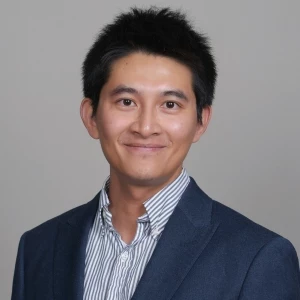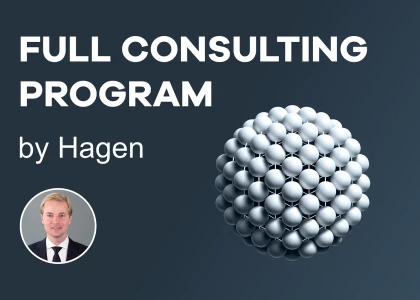APD candidate applying for a NE office. I was fortunate to get a final round offer, which is in a few weeks.
My question is, are there any huge differences between R1 and the final round (aside from the interviewers being more senior/less structure to the interview)? What are important areas to focus on, aside from just sharpening casing skills and PEI? Thanks in advance!
Differences between McK R1 and final round?


Hi there,
First of all, congratulations on the progress in the application process with McKinsey thus far!
I would be happy to share my thoughts on your question:
- First of all, while the essential structure of the interviews typically remains the same, the final round places more emphasis on your ability to connect with senior leaders and demonstrate strategic thinking.
- Moreover, while there is a high degree of standardization, some partners still tend to do their own version of an interview, so you may face different dynamics during the interview.
You can find more on this topic here: How to succeed in the final interview round.
If you would like a more detailed discussion on how to best prepare for your upcoming final-round McKinsey interviews, please don't hesitate to contact me directly.
Best,
Hagen

Hey there,
Congrats on the 2nd round - almost there :-)
The first thing that you should know is that you have what it takes and you can go confidently into the 2nd round. The 2nd round is just to confirm what has been noticed during the 1st, yet with a different set of eyes from more senior firm leaders.
Now to your questions:
McKinsey is trying really hard to create an objective and standardized interview experience for all candidates, across offices, practices, and interviewers. As a result, you should expect exactly the same interviewing format as in the first round
- 25 minutes PEI
- 25 minutes case
- 5 minutes for your questions at the end of the interview
You will be evaluated on the same criteria, and metrics, with the same types of cases and questions.
Now, that's the theory. :-)
Quick reality check!
That being said, partners still often employ their own way of doing interviews based on their personal preferences, which means that sometimes the final round with them can be less predictable.
Some focus on the case, others focus solely on the fit part (and deviate from the traditional PEI to ask other personal fit questions), and some stick to the standard format. I had a candidate recently who had to go through two cases and one of them was made up on the spot, which made it very tricky.
In general, the more senior the partner, the more likely are they to deviate from the standard interview format because they a. can b. have their own way of doing things. :-)
So now you know the practice.
What does this mean for you and your preparation?
Nothing much.
Continue with your preparation, meaning
- Rehearse and finetune your PEI answers with a coach or peers who know what they are talking about
- Hone your case interview skills that are relevant for McKinsey (structuring, math, exhibit interpretation) with coaches and drills
- Prepare for some traditional fit questions (Why consulting, why McKinsey, etc.)
- Pay special attention to the areas where you received negative feedback in the first round. Second-round interviewers are aware and will dig deeper into these specific areas
During the interview
- Stay cognitively flexible
- Do not be surprised if the format deviates from what you expect
- Stay calm and collected no matter what happens
- Stay enthusiastic, and engaged, and portray the impression that you are happy to be here (partners love that...)
If you managed to pass the first round, you should have it in you to pass the second round as well.
Fingers crossed and let me know if you need some help with McKinsey!
Feel free to read some of the articles I wrote here about the process:
- Case: https://www.preplounge.com/en/articles/mckinsey-interview
- PEI: https://www.preplounge.com/en/mckinsey-pei
Cheers,
Florian

Hi
Anything goes in the partner round - so focus more on the skills required to be successful in any situation rather than prep around specific sector, problem context etc.
For example, my 3 partner interviews at McKinsey:
- Partner 1 - standard case from the case library, extremely structured and very similar to round 1
- Partner 2 - “it's Friday let's talk about beer”
- Partner 3 - “I'm thinking about a study I worked on 20yrs ago whilst in the US around systems computing”
Trust your skills that got you past the first round - good luck!

Technically no. Interview follows the same structure and interviewer is assessing same criteria. Only difference is that interviewers are more senior (typically Partners or Associate Partners).














